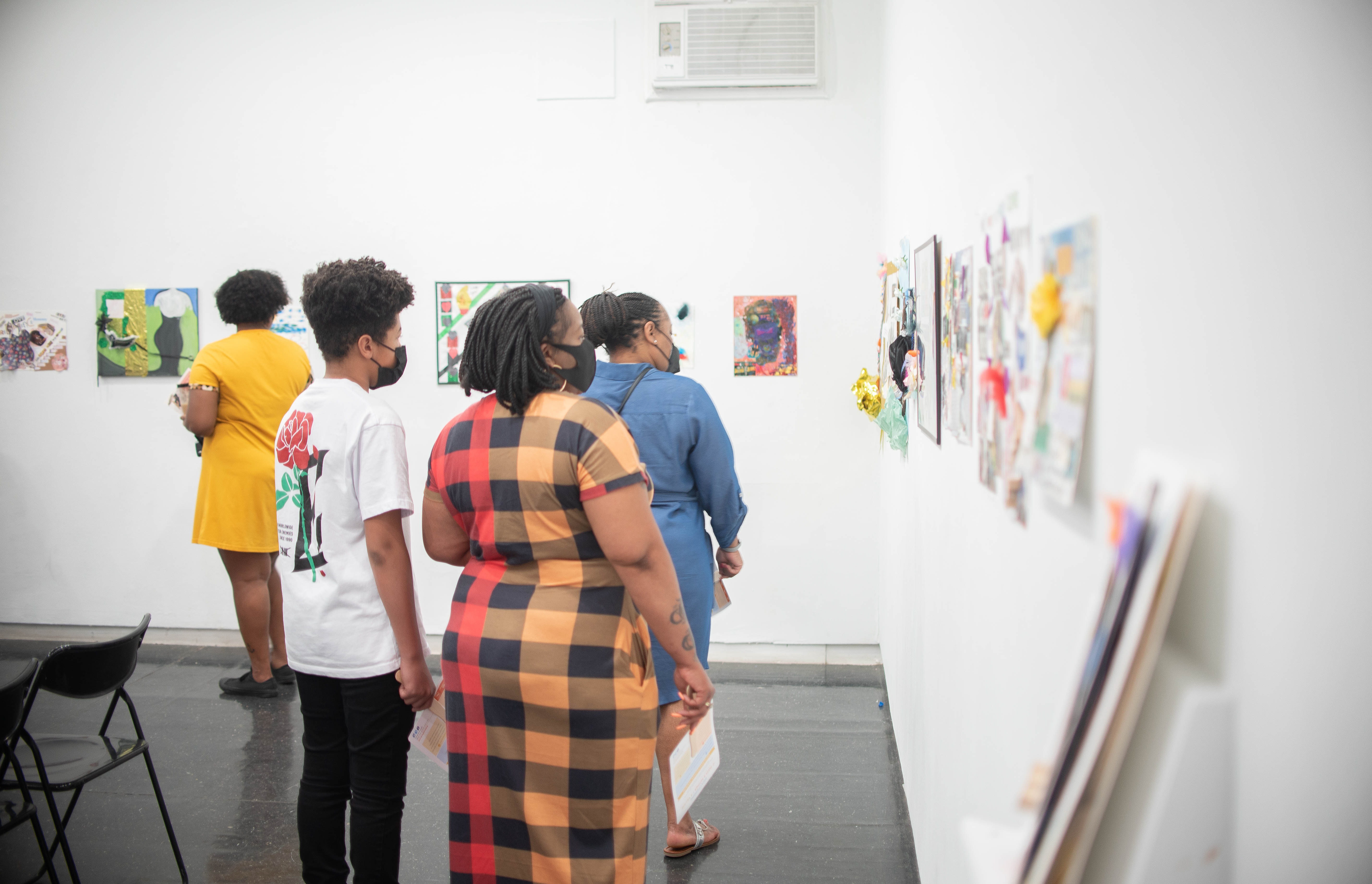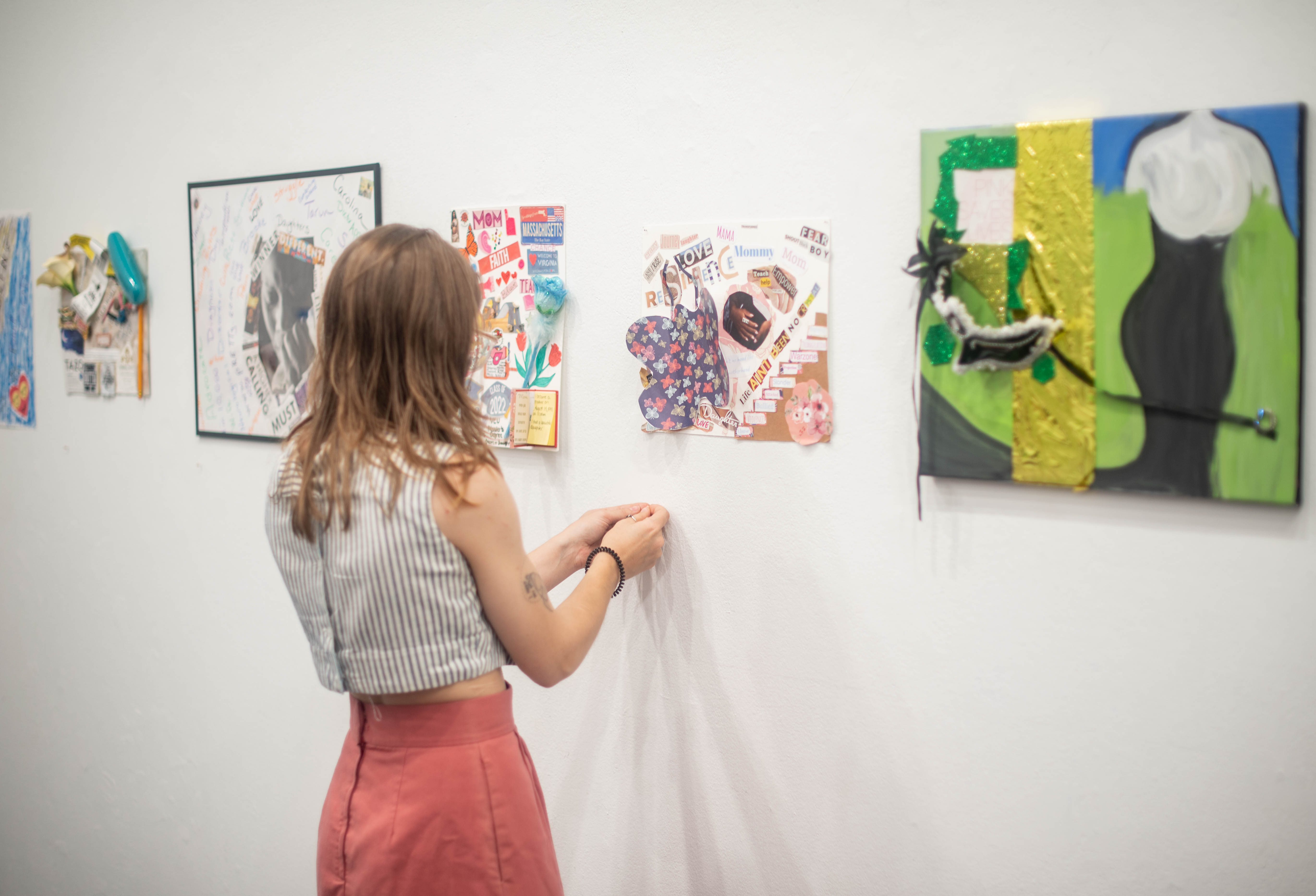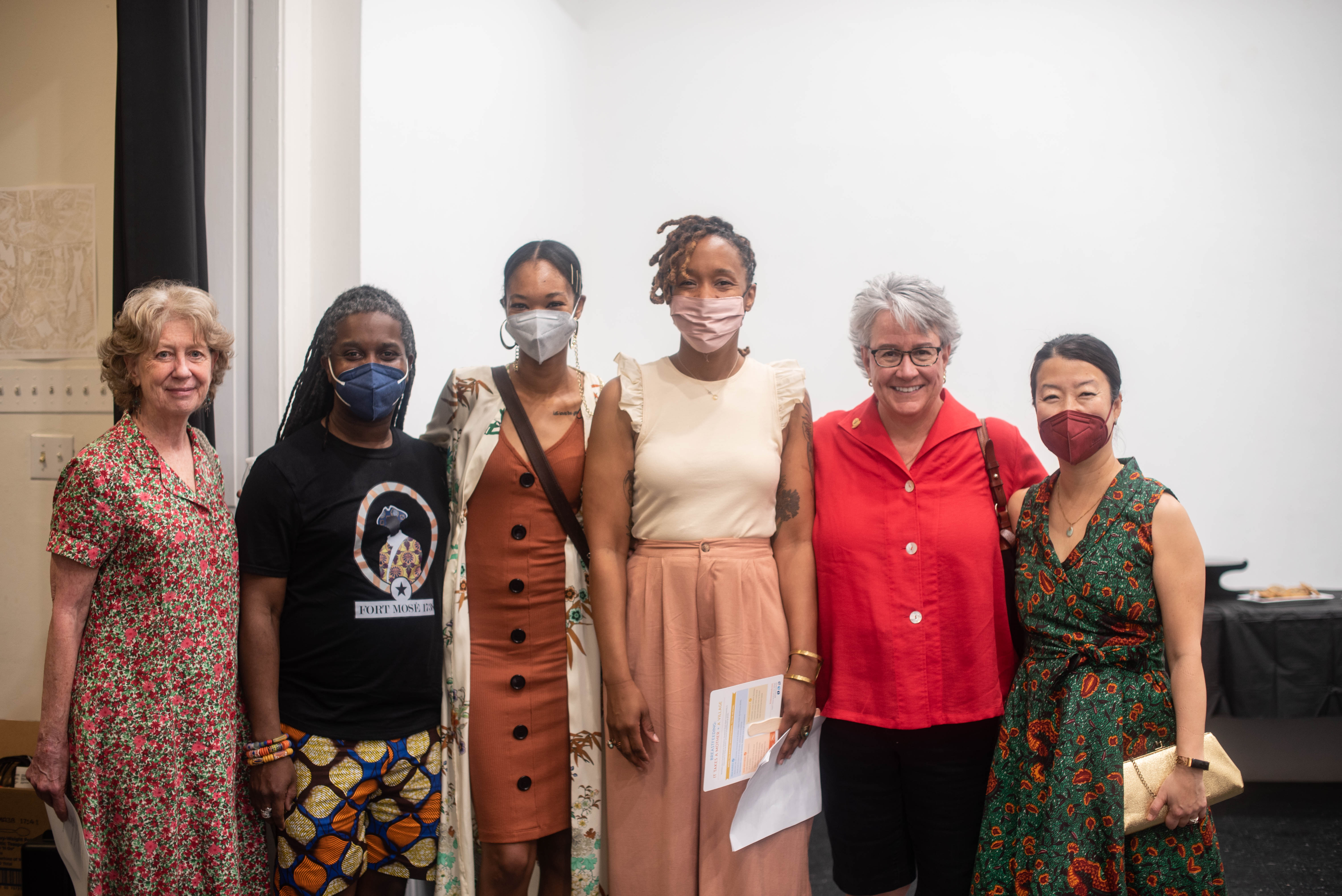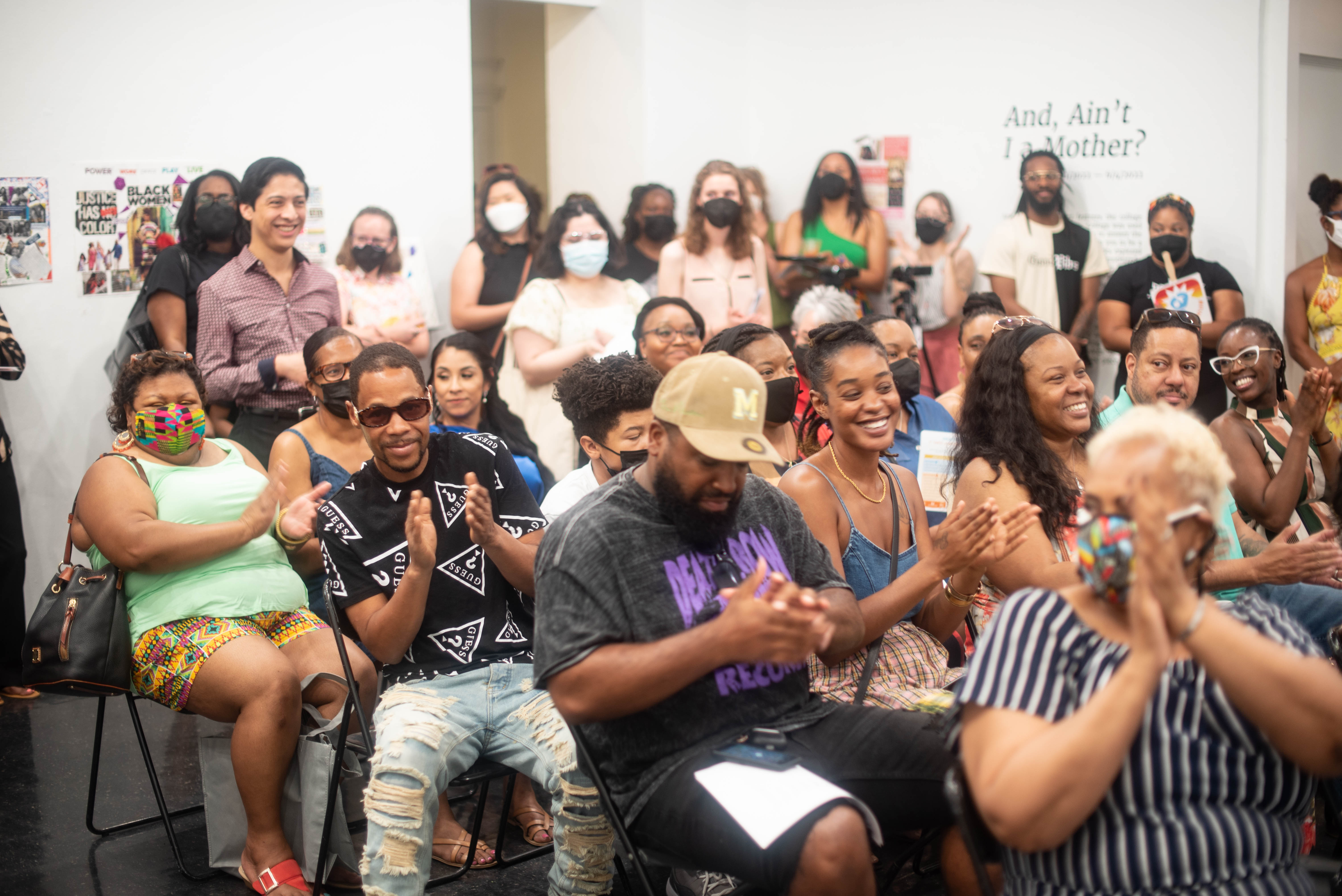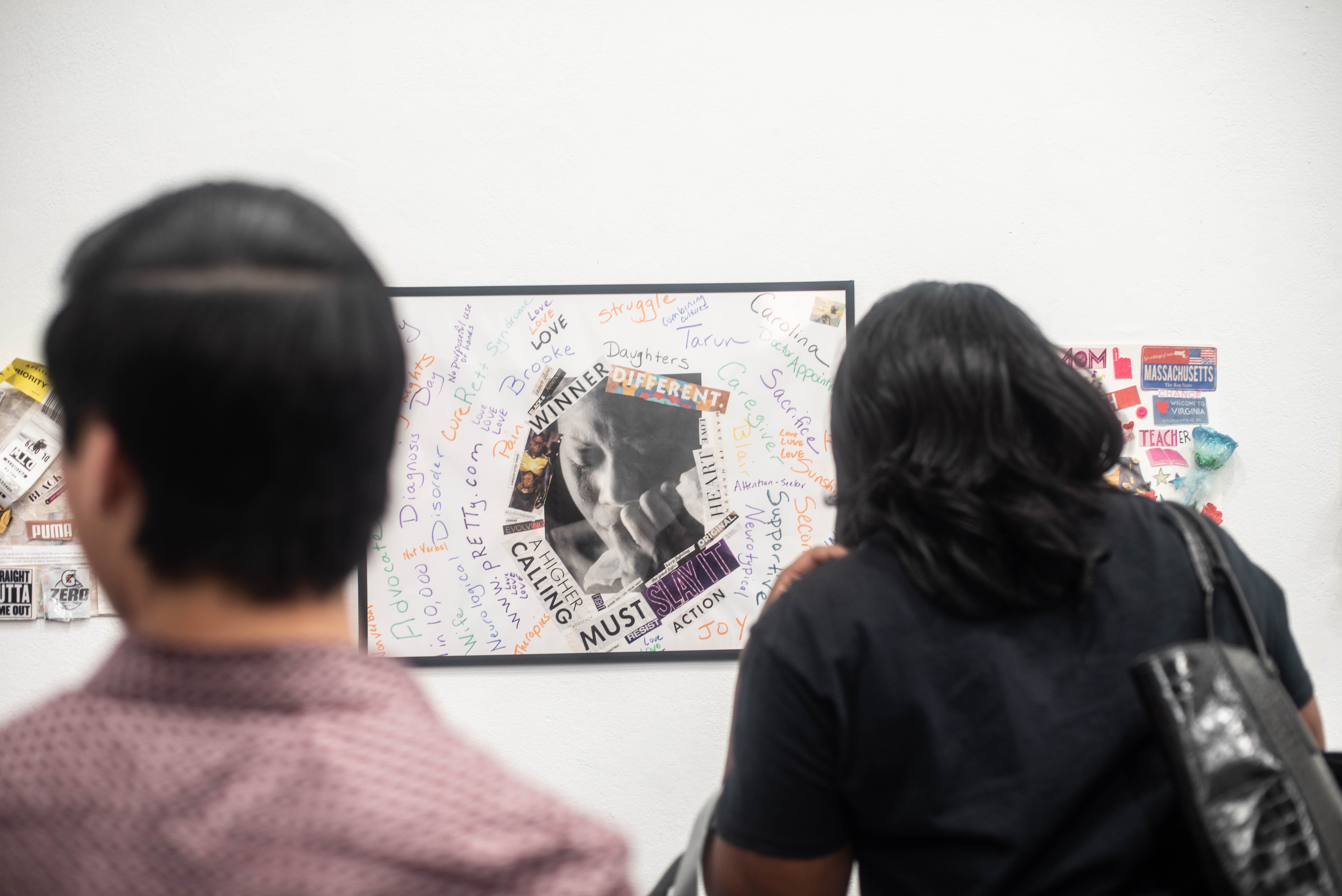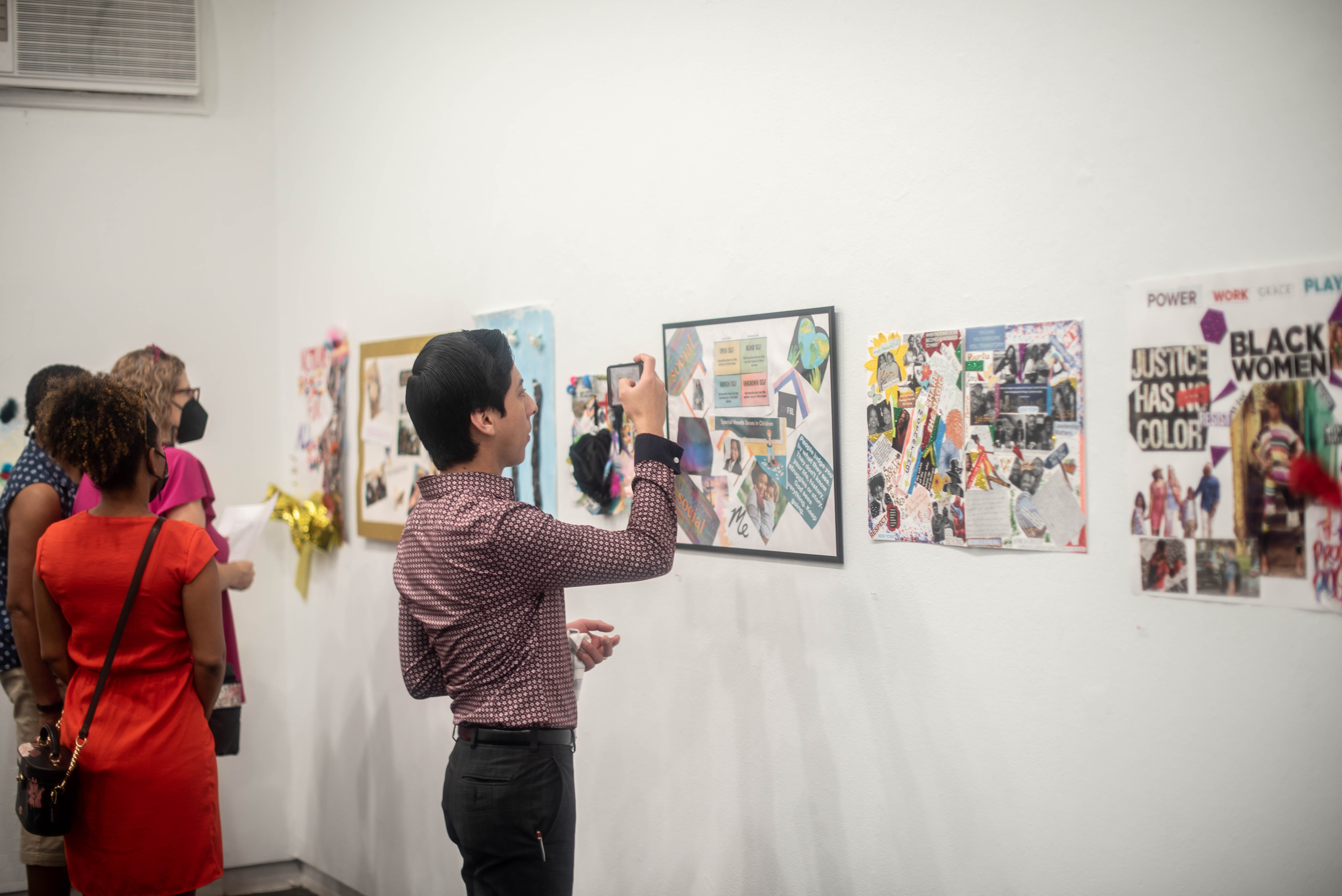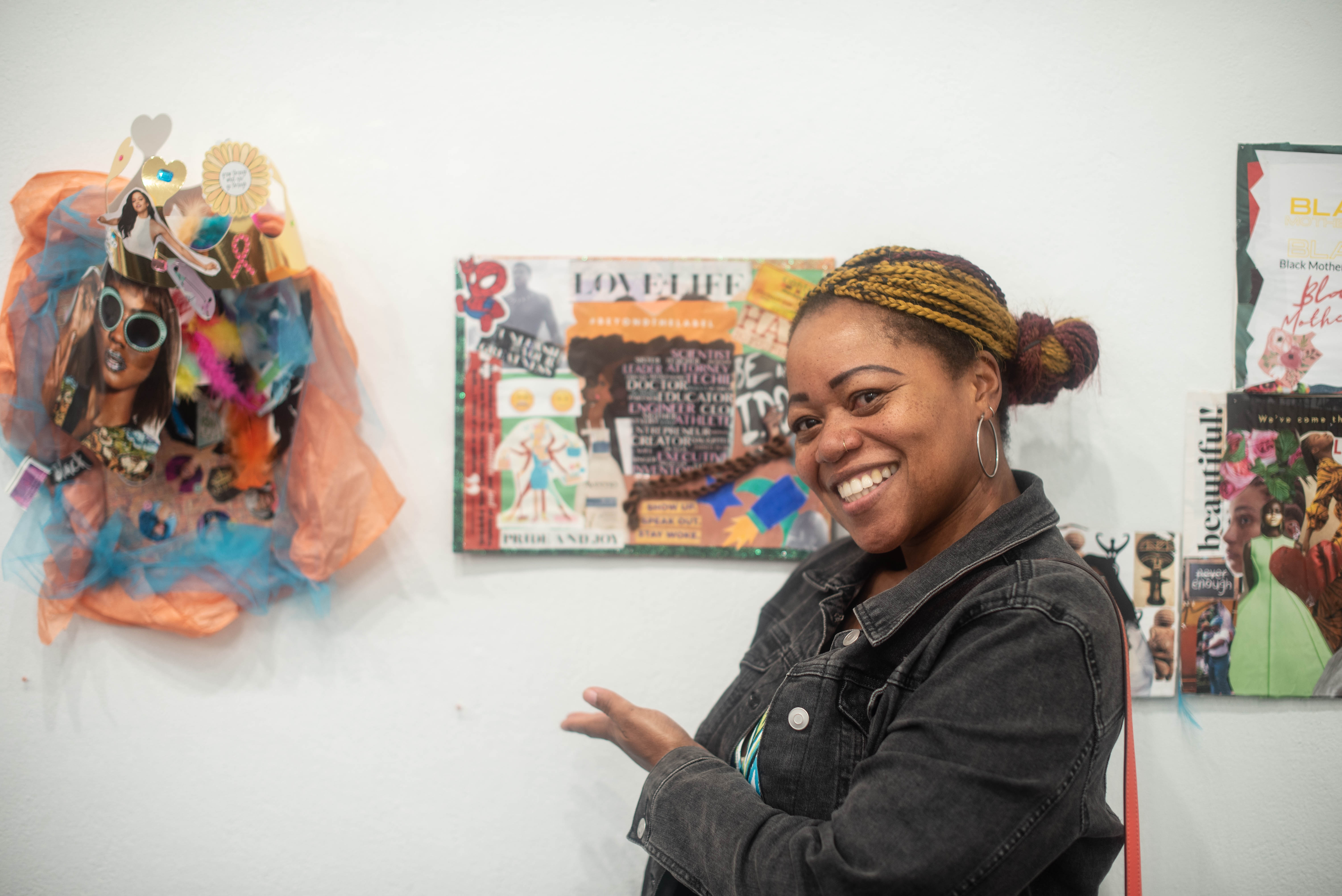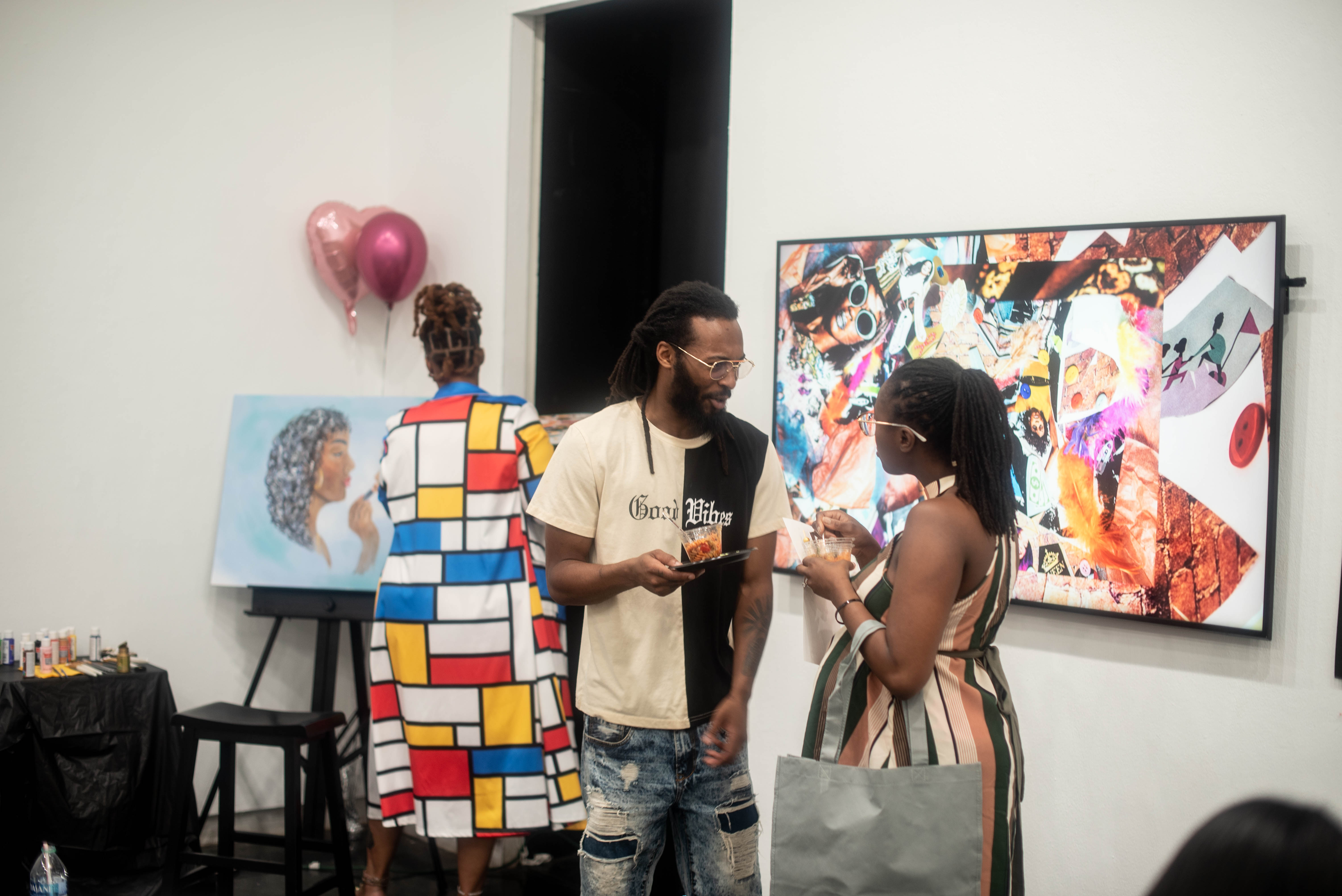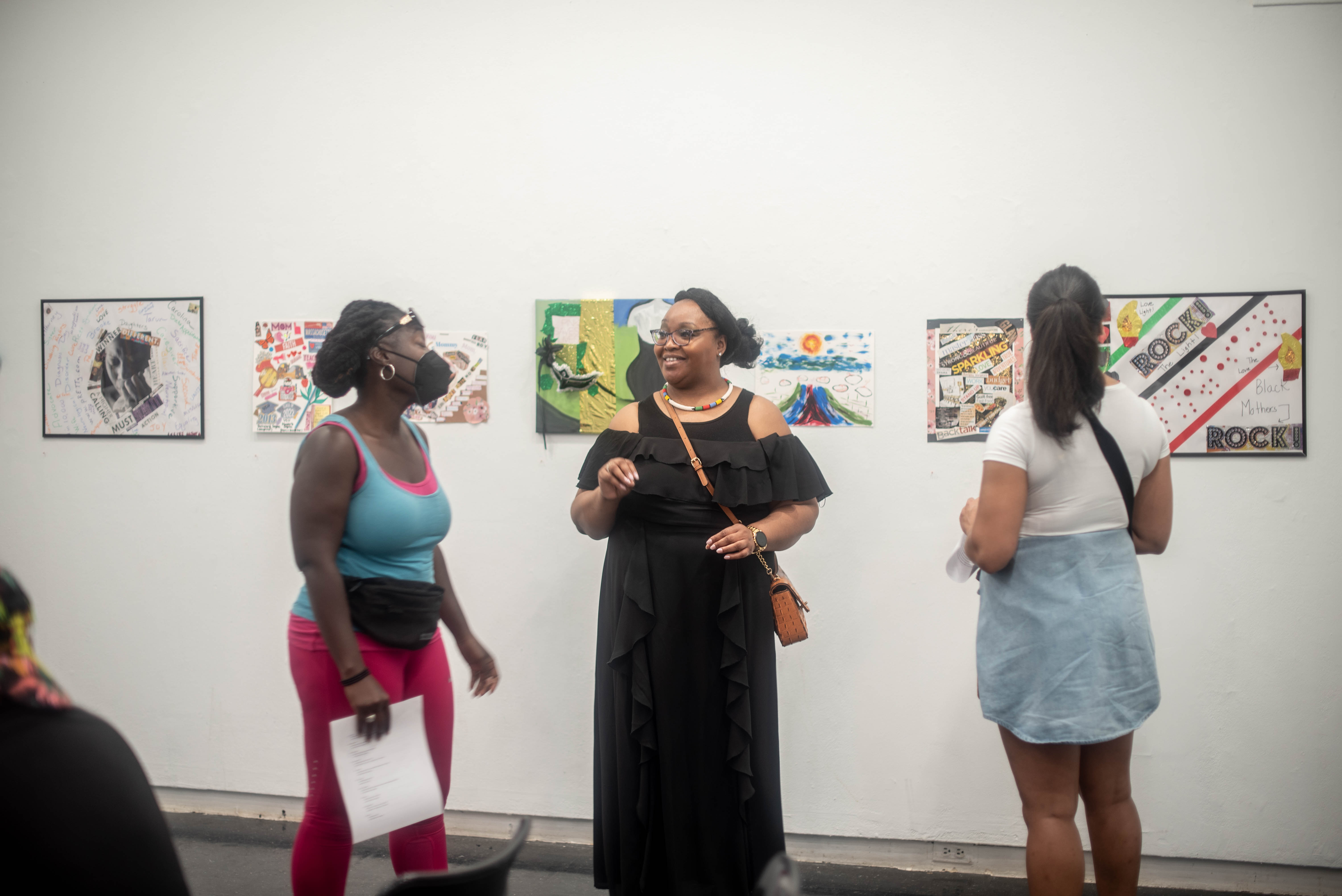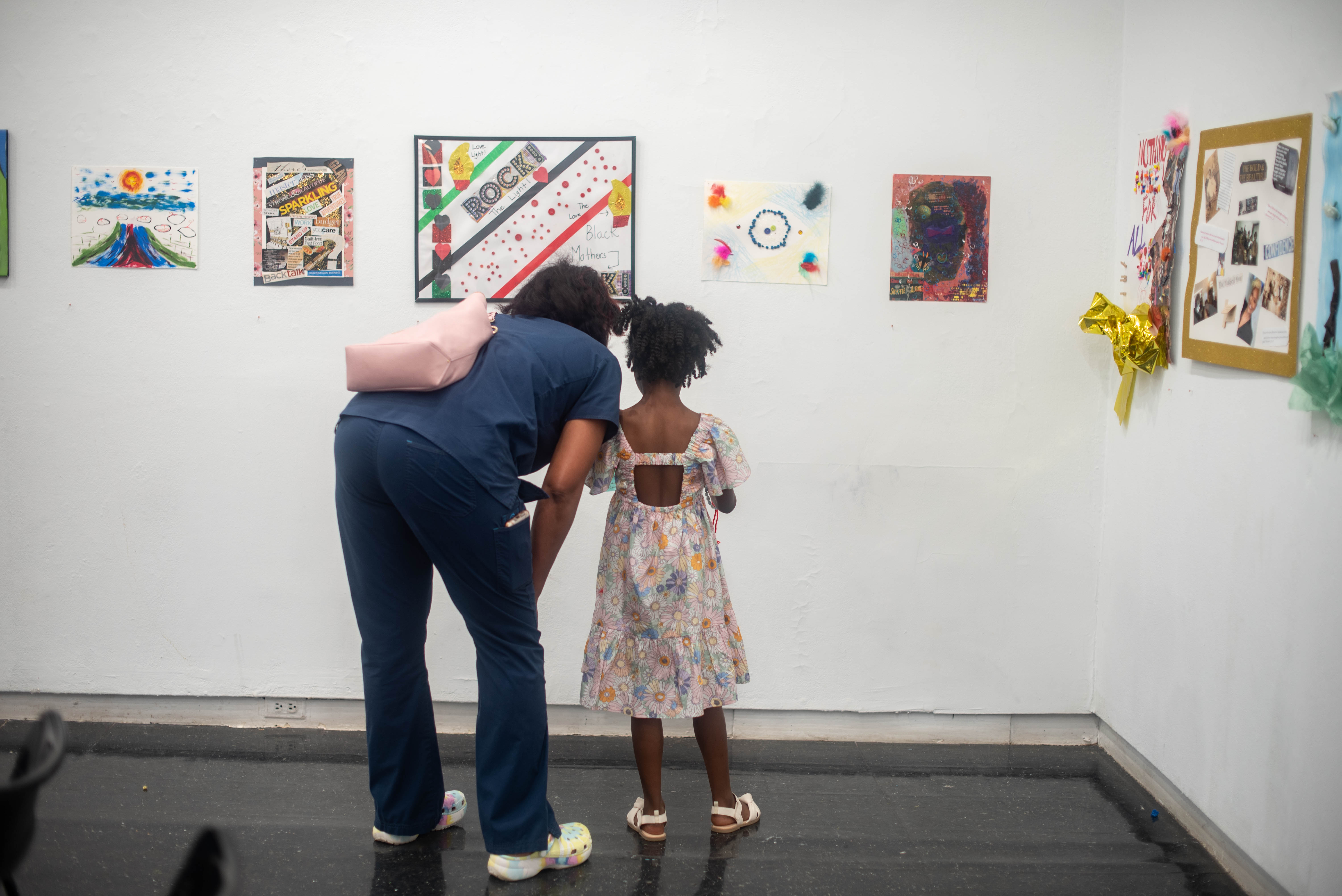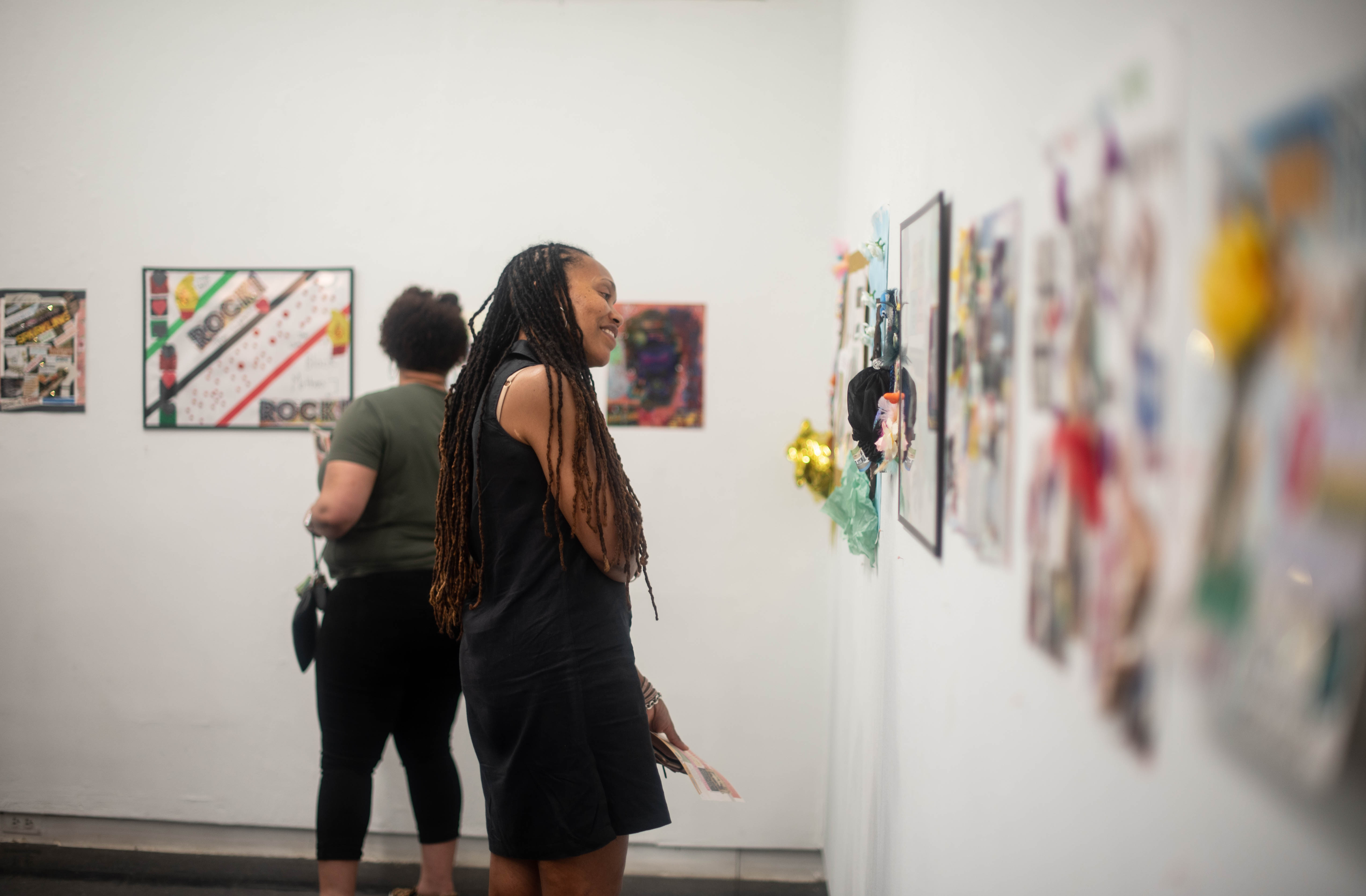Nicole Corley: The art of Black motherhood
Nicole Corley, Ph.D., assistant professor, co-led an interdisciplinary research project – and art exhibit – that was highly personal to her.
And, Ain’t I a Mother? explored the beauty, vulnerability and strength of Black mothers and the institution of Black motherhood, drawing on the stories and artistic talents of 26 Black mothers around the country.
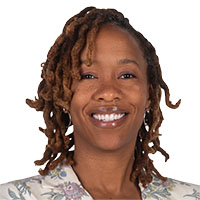
“I’m a Black mother, so I wanted to learn more about myself through the stories of other Black mothers,” says Dr. Corley, whose children are Jalen, 22, and Zuri, 7. “It was also an endeavor to learn more about the experience of those who share similar identities or experiences. Historically, understanding Black motherhood from the subjective experiences of Black mothers is an area that’s been under-researched.”
She was inspired by art as a form of storytelling and connectivity. “I've always loved stories, hearing people share their lives. You know how you just have some people who like to sit at the feet of people and listen to their stories? That’s me inherently.”
She found a perfect medium for the project in collage. “Collage in many ways is like a metaphor for Black motherhood. When collage came on the scene, it was not considered art. And, similarly, Black motherhood is deeply political. Black mothers often have had to face and contend with deficit notions about their mothering practices. The process of collaging and sourcing materials allows mothers to self-define and tell their stories in their own unique way.”
Dr. Corley’s call for participants drew interest – and also some apprehension. “A lot of the mothers said, ‘oh, but I’m not an artist, I’m not creative.’ I had to remind them: You're a black mother. You are the ultimate creative!”
Originally viewed as a Richmond-based project, And, Ain’t I a Mother? pivoted to a national focus and virtual engagement with the onset of the Covid pandemic in spring 2020. Participants came from as far as California and New York.
Dr. Corley sent each mother a basic set of supplies – “kind of elementary school art kits with glue, paint, paintbrushes, magazines and paper” – and stressed working with these and other materials they already had. “Don't go out and buy anything,” she says she told them. “You already have what you need. It’s an important reflective process.”
Time spent on the collage was “sacred,” she says. “Mothers are always attending to someone else, so this was a chance to sit down and focus on their own lives. I encouraged them to work on it by themselves – oftentimes we have other people tell our stories for us, and I didn’t want those perspectives. You tell your story.”
Collage in many ways is like a metaphor for Black motherhood. When collage came on the scene, it was not considered art. And, similarly, Black motherhood is deeply political. Black mothers often have had to face and contend with deficit notions about their mothering practices. The process of collaging and sourcing materials allows mothers to self-define and tell their stories in their own unique way.
The culmination was an art exhibit in Richmond this past May and June. She partnered with VCU Arts and used their space in the Anderson Art Gallery.
“It was always part of the project design to have an art show because traditional modalities don’t touch the people that you really want to touch. Art and our bodies are sites of knowledge. It is important to consider methodologies that go beyond text and that can embody the lived experiences of the storyteller.
“I was trusted to have these stories, and it’s important to give these stories back to the mothers and to the community,” says Dr. Corley, who notes that the collages were returned to participants after the exhibition. “So many folks from the community came and were delighted and saw themselves in these collages.”
As a researcher, expanding access to scholarly work outside traditional platforms is essential, she says. “Manuscripts aren't the only currency. Folks don't have access to journals. Community doesn't have access to journals in the same kind of way. So while I am writing manuscripts on the experience, the best part of the experience was giving these collage stories back to the mothers, back to the community. But you’re sort of trying to break the mold a little bit. It’s both.”
VCU film students Jasmine Elmore and Myles Manual created a video showcasing the artwork and the voices of the participating mothers. Social work Ph.D. student Britney Pitts and M.S.W. students Shayla Sanders and Brittany Watson also participated in the project, as did VCU post-baccalaureate student Kashmala Naz and Da’Shunnda Hayward-White, M.S.W.
A number of themes emerged from the project, an indication, Dr. Corley says, that “Black motherhood is multifaceted. It’s not just one thing.”
Some moms, she says, focused on “not raising their Black kids just to survive, but raising them to thrive.” Others explored how they are not raising their children like they were raised, specifically in avoiding “old-school disciplinary practices like corporal punishment.” Still others focused on the “tensions of Black motherhood as it relates to societies and impressions of their mothering … especially those with Black boys.”
As important as motherhood is, though, the participants emphasized their full selves. “Quite a few moms talked about, ‘I'm not just a mother. I am many things. And I don’t want to be just seen as a mother, it’s just one piece of my identity.’ Oftentimes that's the only way that you're looked at is, OK, you’re a mom, that's it. But they wanted to be seen as more than just a mother.”
